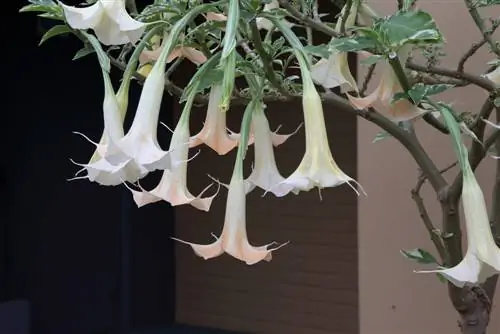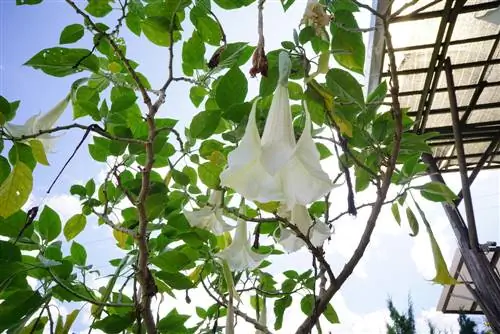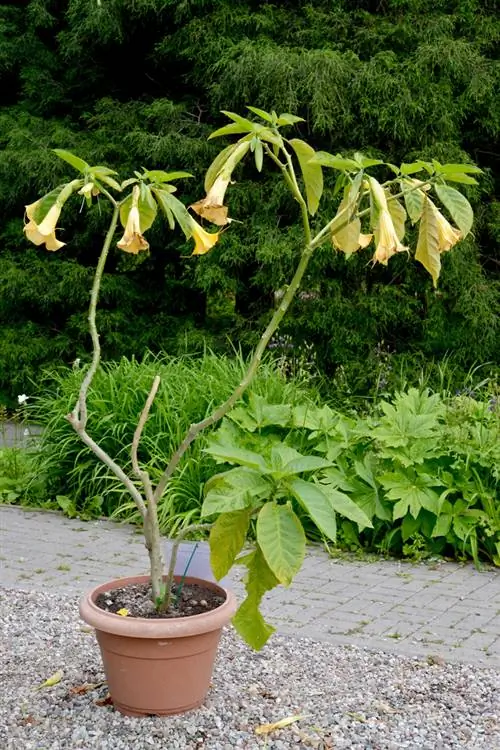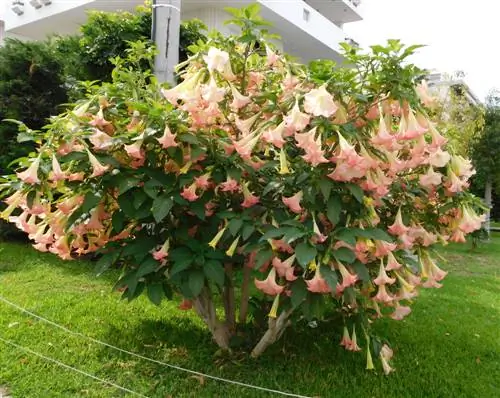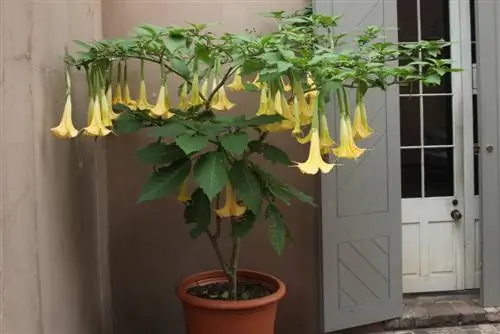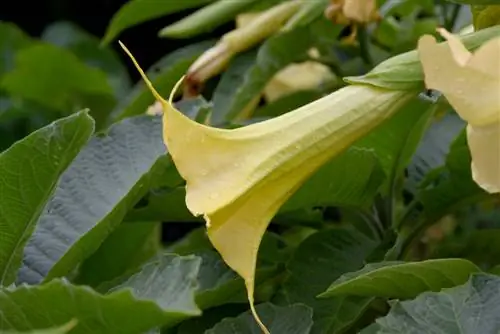- Author admin leonars@hobbygardeners.com.
- Public 2024-01-02 03:03.
- Last modified 2025-01-23 11:21.
When an excessive angel's trumpet begins to shed its leaves, it signals an acute need for support. Now it's time to find out what's wrong with her and how we can help her - we'll help you with the detective work.
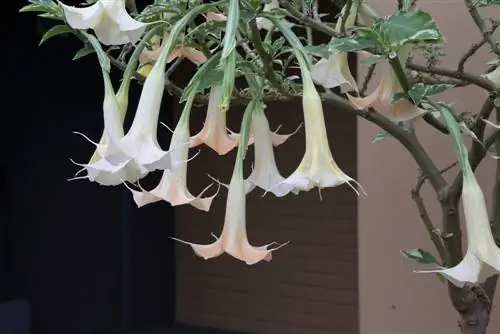
Why does the angel trumpet lose its leaves?
An angel's trumpet loses leaves due to lack of water, lack of nutrients, over-fertilization or a location that is too hot and sunny. The plant can become he althy again through sufficient watering, appropriate fertilization and a partially shaded location.
Why the angel trumpet can lose its leaves
If your angel's trumpet sheds all of its leaves in a dark winter quarter, this is completely normal and not critical. You can confidently trust that it will sprout freshly again in the spring when there is renewed light. If the angel's trumpet suddenly shows a massive loss of leaves in the middle of the vegetation phase, something is wrong. As a rule, it indicates a care error - and in most cases it can be effectively corrected. Possible causes of leaf loss are:
- Water shortage
- Nutrient Deficiency
- (rather rare) Overfertilization
- too hot and sunny location
Water shortage
The angel's trumpet needs a lot of water and can't stand it at all if it's dry. Especially in particularly warm, dry summer phases, it can quickly happen that your root ball dries out. If you haven't been watering at least once a day, do it now. Then the angel trumpet can definitely recover.
Too much water is rarely a problem, but it cannot be ruled out either. Good drainage in the lower substrate in the form of expanded clay (€19.00 on Amazon) is an important prevention against waterlogging.
Nutrient Deficiency
Our nightshade plant from the Andes is not only thirsty, but also hungry. A generous and, above all, regular supply of nutrients in the form of long-term fertilizer in the substrate and phase-dependent, acute growth and flowering fertilizer once or twice a week is a must for the angel's trumpet. If this hasn't happened before, just stick to this rule from now on.
Overfertilization
The hungry angel's trumpet is actually difficult to over-fertilize. However, with certain types of fertilizer and excessive doses, you can still burn them. Especially if you use quick-acting but cheap and rather “unloving” compound fertilizers such as common blue grain in excess, this can do more harm than good to the plant. Repot the angel's trumpet, renew the overloaded substrate and from now on use gentler fertilizer, possibly for flowering pot plants or even specifically for angel's trumpets.
Too hot and sunny location
Angel's trumpets prefer a semi-shady location - if they get too much sun and heat, they can damage the leaves that are thick on the surface. As a countermeasure, do not place the plant in full shade, but rather in a partially shaded, protected place.

